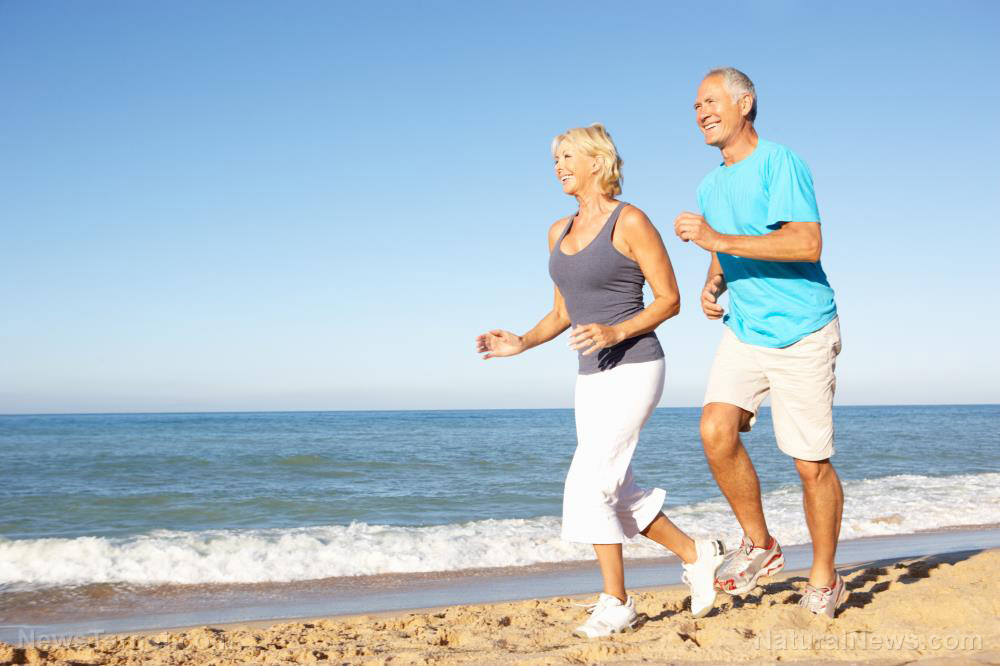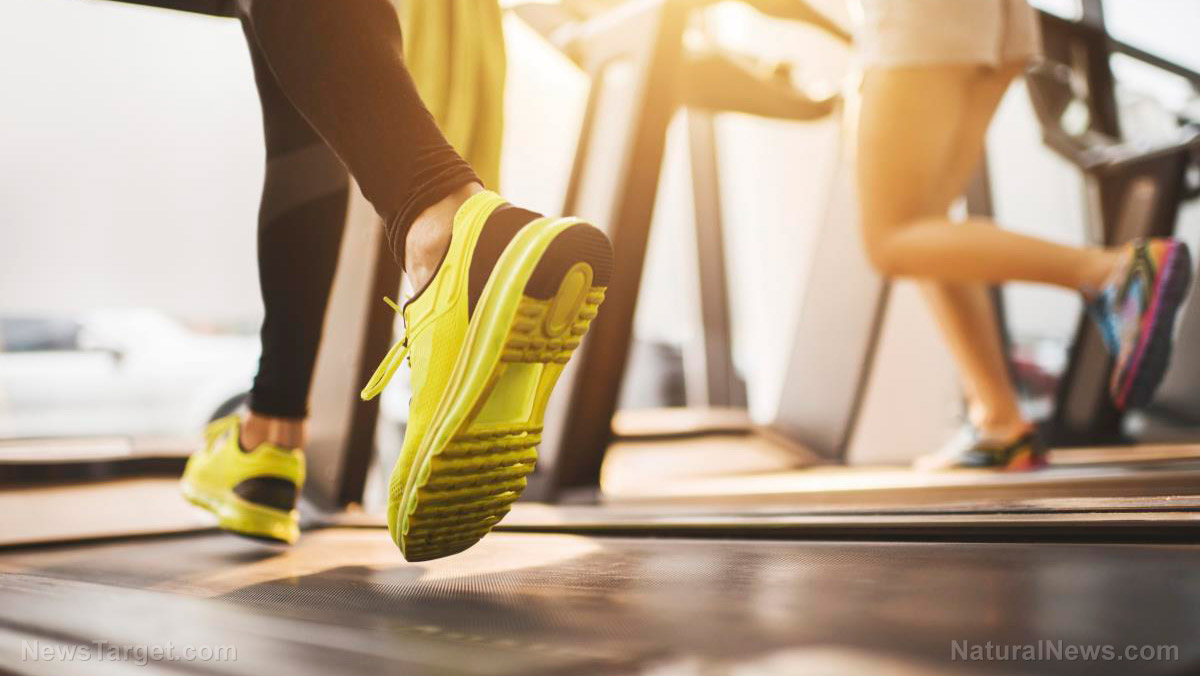Why exercise is the safest way for you to reduce your anxiety
04/08/2019 / By Ralph Flores

Feeling anxious about something? Try exercising. Multiple studies have shown a link between the two – from psychological theories suggesting that exercise improves self-efficacy and social interaction to clinical trials that reveal a positive relationship between exercise and anxiety prevention.
But why exactly is exercise a great way to reduce feelings of anxiety? Here are just some of the evidence-backed reasons to explain this benefit.
It can greatly reduce a person’s stress levels. The idea of exercising while you’re already stressed out from being anxious might seem counterintuitive, but experts say that exercise can indeed bring about relaxation – if done in a controlled, graded fashion. In particular, it can bring down adrenaline and cortisol levels – dubbed as the body’s stress hormones – and can boost the production of endorphins, natural chemicals that function as the body’s painkillers and mood elevators. A review in American Family Physician noted that aerobic exercise significantly reduced symptoms in people with anxiety and panic disorders.
It does take some getting used to: The first steps are usually the hardest, but it gets easier as you begin to tolerate exercise and start getting into shape.
It contributes to improvements in behavior. Regular exercise can benefit a person physically, but its behavioral and emotional benefits are things that should also be considered. A person who regularly exercises will see noticeable changes in their appearance, which can improve their self-image. Exercise also instills a sense of discipline, mastery, and self-control, which can help a person achieve other important goals. Studies on how exercise improves a person’s behavior have been promising. In a 2008 study in the journal Depression and Anxiety, researchers found that regularly working out could help a person who’s prone to anxiety to better control their behavior when faced with a threatening situation.
Depending on your routine, it could also be a great way to enjoy some time alone or make friends and build networks. (Related: Adults and kids buck depression, anxiety and hyperactivity with exercise.)
Manage anxiety with these exercises
While stress and anxiety are part of everyday life, an anxiety disorder isn’t. The condition, marked by persistent or worsening feelings of anxiety, is also the most common type of mental illness, affecting over 40 million American adults every year. For those suffering from the condition, exercise could benefit them when used as part of therapy, given its benefits.
If you are looking to start regular exercise, the current Physical Activity Guidelines for Americans recommends at least 150 to 300 minutes of moderate-intensity physical activities or 75 to 150 minutes of vigorous-intensity aerobic activity each week. For starters, a good way to measure the intensity of your exercise is with something called a rating of perceived exertion (RPE). You can carry a conversation during a moderate-intensity workout but still feel slightly breathless, which will be replaced by short grunts and profuse sweating during a vigorous-intensity workout. (Here’s a simple explanation of the RPE, and the complete scale.)
Here are just some of the activities you can do to ease your mind from anxiety.
- Running. Aside from helping you live longer, studies have shown that running can improve mood – great for people with anxiety disorders. A review in the Journal of Psychiatry & Neuroscience noted that running had a similar benefit as antidepressants, sans the adverse effects, and promoted neuron growth in the brain.
- Hiking. In a study published in Environmental Health and Preventive Medicine, researchers found that people who took a 20-minute “forest bath” – that is, a walk in the woods – experienced significant drops in their stress hormone levels. It’s also reported to improve memory function and lessen feelings of anxiety.
Regardless of your physical or mental condition, exercise can be beneficial to both. However, it’s best to talk to your healthcare provider to understand the ways to best incorporate exercise in your everyday life.
Even better, head over to Slender.news to learn more about how exercise is beneficial to mental health.
Sources include:
Health.gov [PDF]
Tagged Under: Anxiety, anxiety disorder, anxiety relief, beat anxiety, beatdepression, cognitive health, exercise, fitness, longevity, mental health, natural cures, natural medicine, natural remedies, prevention, remedies, self-help, slender, stress relief



















